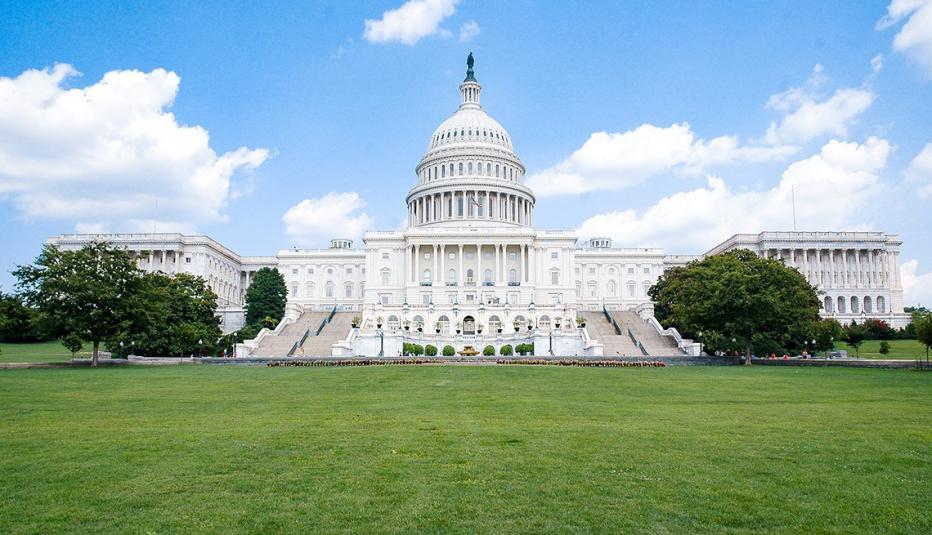AARP Hearing Center
AARP election polls this year have focused on likely voters ages 50 or older, in the most competitive states and congressional districts for president and U.S. Congress in the 2024 election. AARP commissioned a bipartisan team of pollsters from Impact Research and Fabrizio-Ward to conduct this research.
You can find AARP's major battleground state pages and polling results below.
Battleground State Surveys
- Report, September 2024
- Black Voters 50+, September 2024
- Women Voters 50+, October 2024
- Report, April 2024
- Black Voters 50+, April 2024
Targeted Congressional District Voters
- Report, November 2024
- Black Voters 50+, November 2024
- Hispanic Voters 50+, November 2024
- Report, June 2024
- Black Voters 50+, June 2024
- Hispanic Voters 50+, June 2024
Battleground States Analysis
Older voters have made up the majority of the electorate in recent elections, and that will be the case in 2024. Approximately nine out of ten voters ages 50-plus report they are extremely motivated to vote, compared to about three-quarter of voters under the age of 50.


Issues of Importance
Economic issues – jobs, inflation, and Social Security – have been the most important issues for older voters in battleground state polls, particularly for swing voters. However, there have been considerable differences by age, gender, race, and political party.
- Most older swing voters cited personal economic security as determining their vote.
- Democrats and women were more likely to say abortion and reproductive rights were top issues of importance, while Republicans and men were more likely to report the economy and jobs as having higher importance.
- Threats to democracy were raised more often by voters ages 65 and older, Democrats, Black voters, and people with a college-education.
Social Security and Medicare
- Voters ages 50+ overwhelmingly said candidates’ policy proposals on Social Security and Medicare were “very” or “extremely” important to determining their votes: regardless of political affiliation. About eight in ten voters said Social Security was very or extremely important.
- Around 90% said they would be more likely to vote for a candidate who pledged to make sure workers get the Social Security they paid into.
- About 80% said they’d be more likely to vote for a candidate who would protect Social Security from cuts.
- About three-quarters said Medicare is an extremely or a very important issue for them in deciding which candidates to support.
- More than 4-in-5 , including the majority of older Republicans, said they would support a member of Congress who wants to continue Medicare negotiations for lower drug prices over one who wants to stop it.
Caregiving
Between 25% and 30% of voters 50 and older report being a family caregiver in the battleground states. Among voters ages 50+ overall:
- Around 70% agreed policies to help seniors live independently at home as they age would be very important in deciding who to vote for in the election.
- About 80% would be more likely to vote for candidates who would provide support for family caregivers, helping their loved ones live independently in their homes.
- About 70% would be more likely to vote for a candidate who supported providing a tax credit to help cover the costs associated with caring for a family member.
- About 70% would be more likely to vote for a candidate who supported providing paid family leave.
Swing Voters 50-plus
Swing voters—those who are not voting for only one party or the other—are seen as the most persuadable as they are either still undecided or willing to vote for candidates from either party. They tend to be Independents and have moderate political views. They have made up about one-fifth of the 50+ voters polled across the battleground states. They tend to be more driven by personal economic issues (inflation, economy/jobs, and Social Security), rather than wedge issues like immigration or abortion. In many states, at least one-third of swing voters are family caregivers.
Methodology
Between May and October, we conducted state polls in Arizona, Georgia, Maryland, Michigan, Montana, Nevada, North Carolina, Ohio, Pennsylvania, and Wisconsin. Each statewide survey included live interviews (cellphone, landline, and SMS-to-web) with 600 likely voters age 18 or older, randomly selected from registered voter lists, and an oversample of voters 50 or older to reach 800 total interviews with voters age 50-plus in each state. Oversamples of Hispanic/Latino (H/L) and African American/Black (AA/B) voters age 50-plus were also conducted in several of these states.
For more information on this research, please contact Kate Bridges at kbridges@aarp.org. For media inquiries, please contact External Relations at media@aarp.org.































































